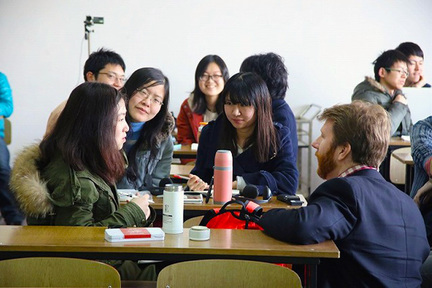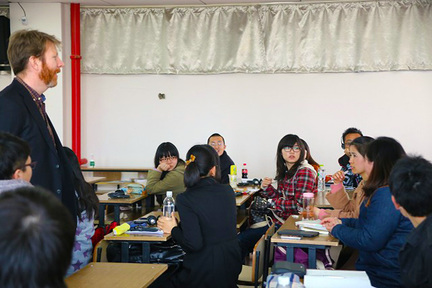I Want to Learn How to Think Beyond Academic Disciplines
Vol.3 2014.03.10 John O'Dea
Body, Mind, World.
March 10-11, 2014
These lectures will focus on philosophical problems which arise when we consider the mind and its place in the natural world. 18th-Century French physiologist Pierre Cabanis once asserted that “The brain secretes thought as the liver secretes bile.” In modern times, we are more likely to compare minds to computers. But is this way of thinking really an improvement? How to think about the relation between thought and world is an important theme in the history of philosophy. It connects to issues such as knowledge, religion, science, and what makes us who we are.
The lectures will be divided into four parts. The first part will focus on the problem of colour: are the colours we see around as really just creations of our own minds, or do they have an objective reality? In the second part, we will discuss the problem of illusion: does the fact that we can perceive wrongly mean that we do not directly perceive the world at all, as many have thought? The third part will be a lecture on the mind-body problem: what is the relationship between mind and body? The final part will be on the problem of consciousness: is an objective scientific theory of consciousness possible, or is consciousness only really knowable from a subjective point of view?
- Instructor
-

- John O'Dea
- Associate Professor in the Department of Interdisciplinary Cultural Studies, Graduate School of Arts and Sciences Professor O'Dea earned his Ph.D. in philosophy from Monash University, after studying in the U.S. that followed his B.A. from the University of Queensland, Australia. He has been serving in the current position since 2013, after serving as Project Assistant Professor in the Center for Global Communication Studies. His main area of research is scientific analysis of cognitive experiences. Recent scholarship has attempted to scientifically understand cognitive experiences per se, and scholars are particularly interested in understanding the constancy of cognition. His publications include: “Consciousness and the Problem of other Minds,” “A Proprioceptive Account of the Senses,” and “Transparency and the Unity of Experience.”
Post a Comment
- Other Lessons


